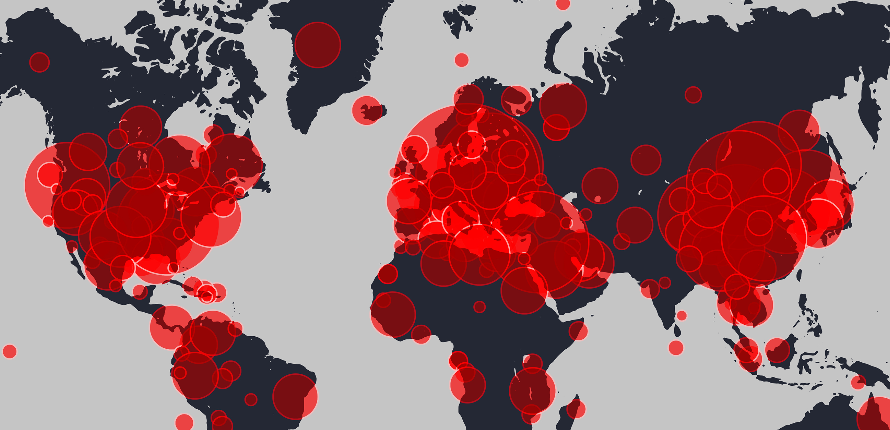We use cookies on this site to enhance your experience.
By selecting “Accept” and continuing to use this website, you consent to the use of cookies.
Search for academic programs, residence, tours and events and more.

In this interdisciplinary lecture, we will show how geographers investigate the emergence, spread, and possible containment of the SARS-CoV2 virus through a unique lens of spatial interaction. In addition, we will see how different geographical tools are used to convey information in both useful and not-so-useful ways.
Instructors Jennifer Marshman and Michael Imort draw on expertise in human geography and in health for a ‘think global, act local’ approach to engaging with this novel virus, which will provide you with some theoretical insights into the global nature of the issue and practical takeaways to implement at home.
Michael Imort received his Ph.D. from Queen’s University in Kingston, Ontario. Ever the geographer, he took the long way to get there, studying at Brock, York, Waterloo, and Freiburg, Germany, with stints in the Arctic, Hawaii, Mali, and Zaire (now the DR of Congo), and a teaching appointment in an English castle—not to mention the days when he worked as a lumberjack or ran a bookstore. When the time came to get serious, he joined the Department of Geography and Environmental Studies at Wilfrid Laurier University, where he currently is an Associate Professor of Cultural and Historical Geography. Originally trained as a forest scientist with an interest in fire ecology, he soon became interested in the human side of environmental problems. Today his research interests include environmental ethics and the many ways in which representations of landscape are used and abused for political purposes.
Jennifer Marshman is a PhD candidate in Geography and Environmental Studies at Wilfrid Laurier University with the Laurier Center for Sustainable Food Systems. Jennifer is a human geographer and food systems researcher whose past research in Canada and in China has explored community food security, urban agriculture, and the lived experiences of street food vendors. As a Registered Nurse, Jennifer brings a truly interdisciplinary lens to her PhD work exploring what insights the ‘Bee City’ movement can provide us with in terms urban pollinator conservation. Jennifer is a recipient of the 2020 Student Teaching Award of Excellence, the Region of Waterloo Community Environmental Fund, and the Go Wild Community Grant from World Wildlife Fund. Jennifer is one of the founding members of the City of Kitchener pollinator working group.
Lifelong Learning at Home is a free weekly series featuring pre-recorded lectures from some well-known Laurier faculty and community experts. Visit the Lifelong Learning at Home section to explore other lectures and to find out more about this limited series offered by the Laurier Association for Lifelong Learning.
Lifelong Learning at Home was created to connect people through lifelong learning during this time of unprecedented challenges. Many Laurier students are experiencing significant financial difficulties as a result of the COVID-19 pandemic.
If you are in a position to do so, you can help us support our students by donating to Laurier's COVID-19 Emergency Fund, which provides emergency financial support, health and wellness support and teaching and learning support during this challenging time.